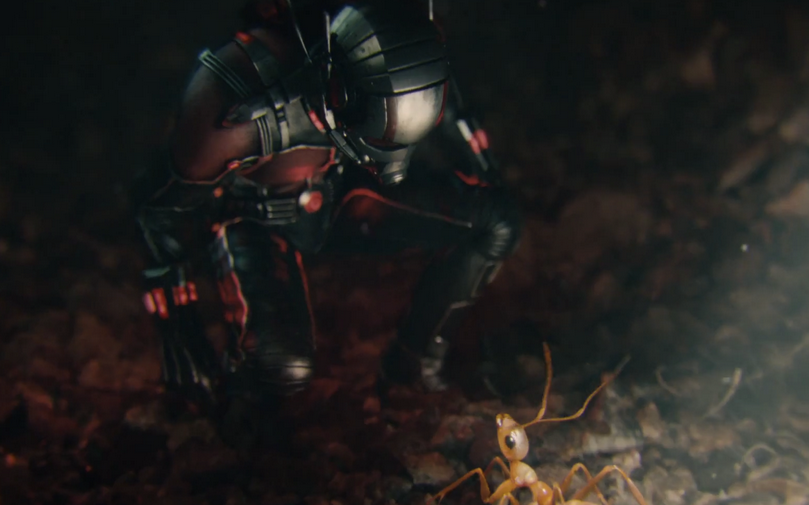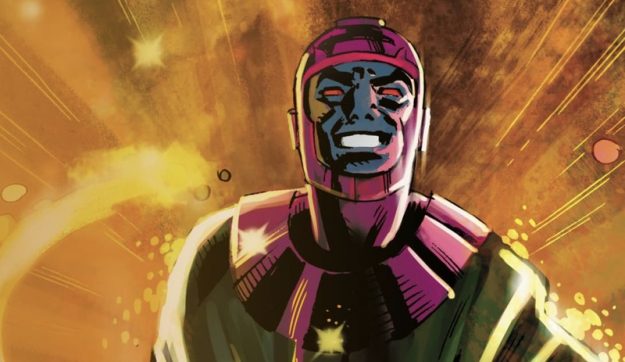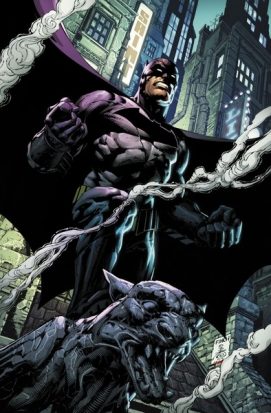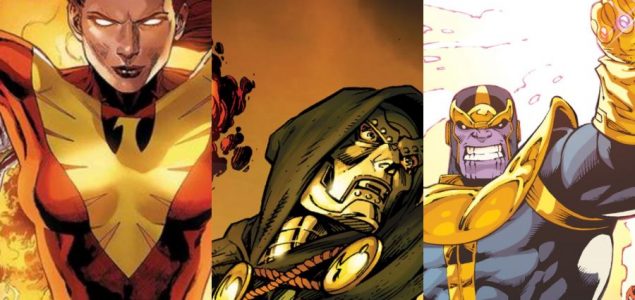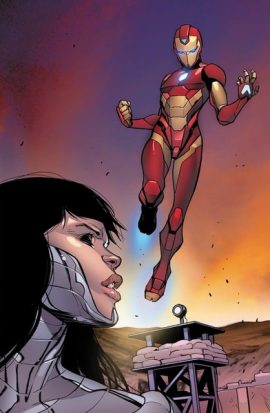Related Resources
Although Ant-Man may be one of the smaller heroes in size, he’s had quite an impact on the Marvel Cinematic Universe (MCU).
From comedic heists to time-bending adventures in the Quantum Realm, the Ant-Man series continues to prove why it’s a fan favorite.
In this article, we’ll explore how the franchise evolved through Ant-Man, Ant-Man and The Wasp and the recent Ant-Man and The Wasp: Quantumania and how it shapes the future of the MCU.
Ant-Man’s Origin And Place In The MCU
The story begins with Dr. Hank Pym, the original Ant-Man, whose groundbreaking Pym Particles enable living beings to shrink to subatomic sizes.
When Pym passes the mantle to Scott Lang — an ex-con with a heart of gold — Marvel takes a refreshing departure from its usual “saving the world” narrative.
Instead, the first film focuses on heist-style missions and comedic moments that set the series apart from more traditional superhero epics.
While Scott may not be a billionaire inventor or a Norse god, his everyman charm and quest for redemption make him instantly relatable.
His introduction to the larger MCU arrives through alliances with the Avengers, particularly when size manipulation becomes a surprising game-changer in battles and in bridging the gap between street-level stories and cosmic conflicts.
Why Ant-Man Is An Excellent Marvel Franchise
Let’s explore what makes Ant-Man a great addition to the MCU.

1. A Refreshing, Comedic Tone
One of the franchise’s biggest draws is its lighthearted humor.
Paul Rudd’s witty portrayal of Scott Lang offers a comedic break from the MCU’s more intense or cosmic narratives.
Whether he’s bantering with his daughter Cassie or fumbling to learn superhero protocol, Scott keeps the tone playful and relatable.
2. Grounded Family Dynamics
At its core, the Ant-Man series remains a story about family and second chances.
Scott’s determination to be a better father to Cassie underpins many of his decisions, providing an emotional anchor that contrasts with the MCU’s high-stakes battles.
This focus on close, personal relationships sets Ant-Man apart from ensemble-driven storylines.
3. The Quantum Realm’s Game-Changing Role
Introduced in the first film, Ant-Man, as a mysterious domain accessed by shrinking to subatomic levels, the Quantum Realm quickly evolved into a key element in Marvel’s overarching plot.
By the time we reach Avengers: Endgame, this realm is vital for time travel.
In Ant-Man and The Wasp: Quantumania, the Quantum Realm takes center stage once again, hinting at new realities and confirming Ant-Man’s significance in the MCU’s grand tapestry.
Box Office Performance And Critical Reception
Critics generally commend the Ant-Man franchise for its humor, engaging performances and fun heist elements.
Fans, too, have embraced the films’ lighter tone and their knack for blending high-tech superheroics with heartfelt family themes.
Now let’s see how each movie performed at the box office and how much the critics and the audiences liked them:
- Ant-Man (2015): Grossed approximately $519 million worldwide, pleasantly surprising audiences and critics who initially doubted the marketability of a tiny hero.
- Ant-Man and The Wasp (2018): Earned about $622 million, building on the goodwill of the first film. Critics praised its inventive action sequences and spirited ensemble cast.
- Ant-Man and The Wasp: Quantumania (2023): Brought in roughly $476 million globally. While this marks a dip compared to its predecessor, it still demonstrates public interest in Scott Lang’s comedic escapades and the Quantum Realm’s mysteries.
Impact On The MCU’s Future
Quantumania kicked off a new chapter in the MCU by introducing Kang the Conqueror as a major villain — a role that will resonate throughout Phase 5 and beyond.
Ant-Man’s intimate connection to the Quantum Realm makes him a central figure in unfolding time-travel and multiversal story arcs.
As the MCU grows increasingly complex, Scott Lang’s adventures prove that even smaller-scale heroes can tip the balance in universe-shaking events.
Potential Criticisms
Some viewers argue that the lower stakes of the Ant-Man films can feel underwhelming when set against cosmic showdowns like Infinity War or Endgame.
Others felt that Quantumania leaned too heavily on exposition, limiting deeper exploration of the Quantum Realm.
Nonetheless, the franchise’s supporters appreciate its comedic relief, emotional core and Scott’s perpetually underdog status as part of the broader Marvel family.

Ant-Man’s Box Office Performance And Critical Reception
The Ant-Man films have been both commercially successful and well-received by critics. The original Ant-Man (2015) garnered positive reviews for its humor and heist-film approach, distinguishing it from other superhero movies.
Ant-Man and the Wasp (2018) continued this trend, praised for its lightheartedness and the dynamic between its lead characters. These films’ success demonstrated that the MCU could diversify its storytelling styles while maintaining audience engagement.
However, Ant-Man and the Wasp: Quantumania (2023) received mixed reviews, with some critics pointing to its heavy reliance on exposition and less effective exploration of the Quantum Realm. Despite this, the film contributed to the MCU’s ongoing narrative by introducing significant characters and concepts.
Ant-Man’s Role In Team Dynamics
Scott Lang’s Ant-Man brings a unique dynamic to the Avengers ensemble.
His background as a former thief provides a different perspective compared to other heroes, often leading to innovative solutions during missions.
In Captain America: Civil War (2016), Lang’s ability to transform into Giant-Man surprised both allies and enemies, showcasing his versatility in combat.
His humor and relatability also add a humanizing element to the team, balancing the more stoic personalities.

Conclusion
From its quirky heist origins to its pivotal role in time-travel and multiversal adventures, Ant-Man has carved out a unique niche in the MCU.
It combines humor, heart, and heroics in ways that are both entertaining and essential to the overarching Marvel saga.
Whether you’re drawn by Paul Rudd’s playful charm or the mind-bending concepts of the Quantum Realm, the Ant-Man franchise proves that sometimes the smallest heroes can make the biggest impact!
Why Ant-Man Is A Game-Changer In The MCU FAQs
The Ant-Man franchise introduced fresh storytelling possibilities that proved crucial in shaping important events in the MCU, like those in Avengers: Endgame.
Audiences enjoy Ant-Man because the movies entertain comedic heists, emotional family moments, and, of course, Paul Rudd’s charm. That combo makes the movies more down-to-earth compared to other larger-than-life MCU blockbusters, and people seem to enjoy that.
Through the Quantum Realm, Ant-Man’s adventures unlocked new dimensions of time manipulation and alternate realities. That’s what makes Quantum Realm integral to the broader MCU arc.
Some critics point out that the narrative is subpar to other MCU movies. They say that the storylines often feel repetitive, while Quantumania specifically faced backlash for poor VFX and looking cheap.
The Quantum Realm interconnects Ant-Man’s storyline with crucial MCU events, such as the time-travel mechanics in Avengers: Endgame.

